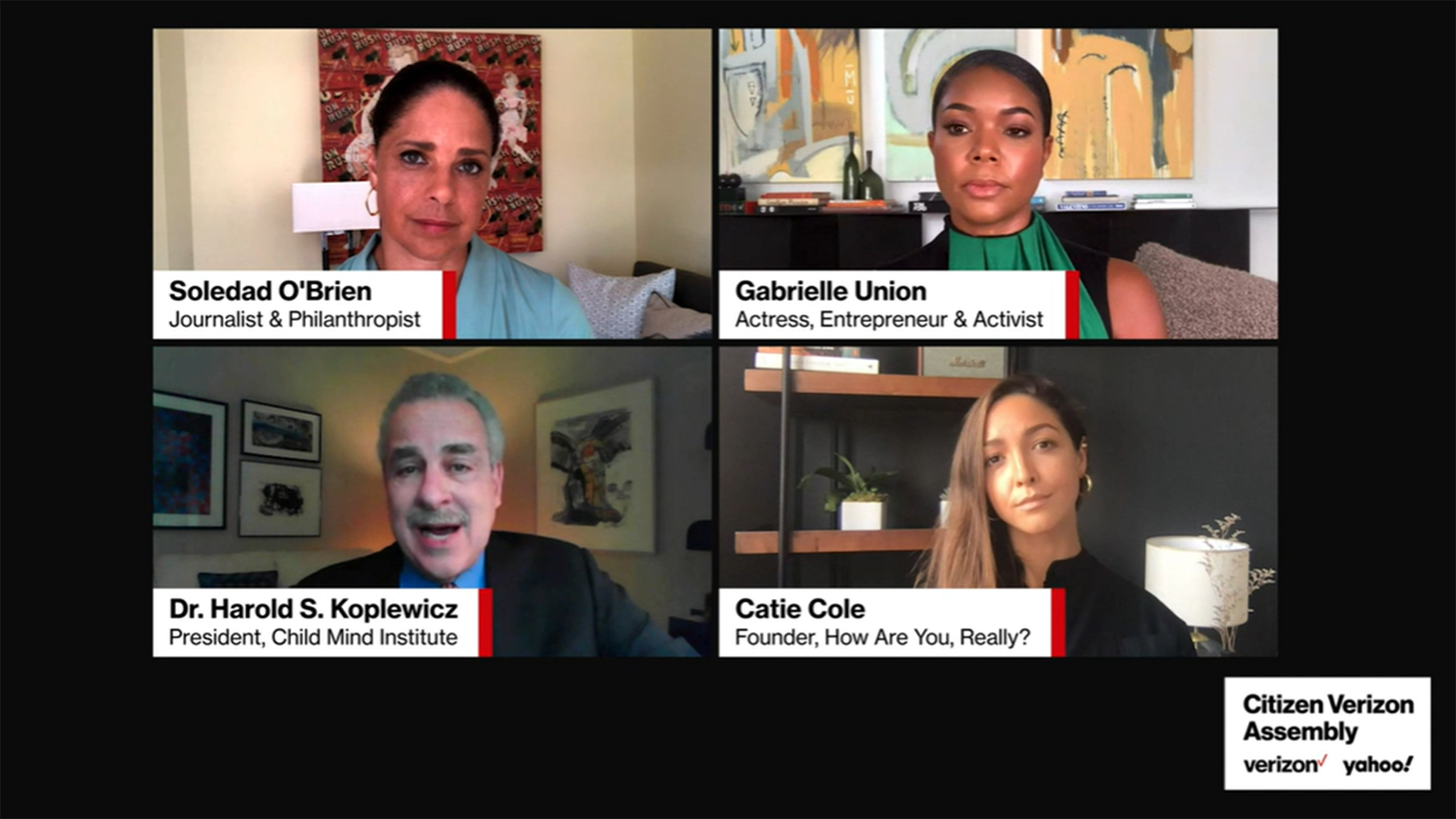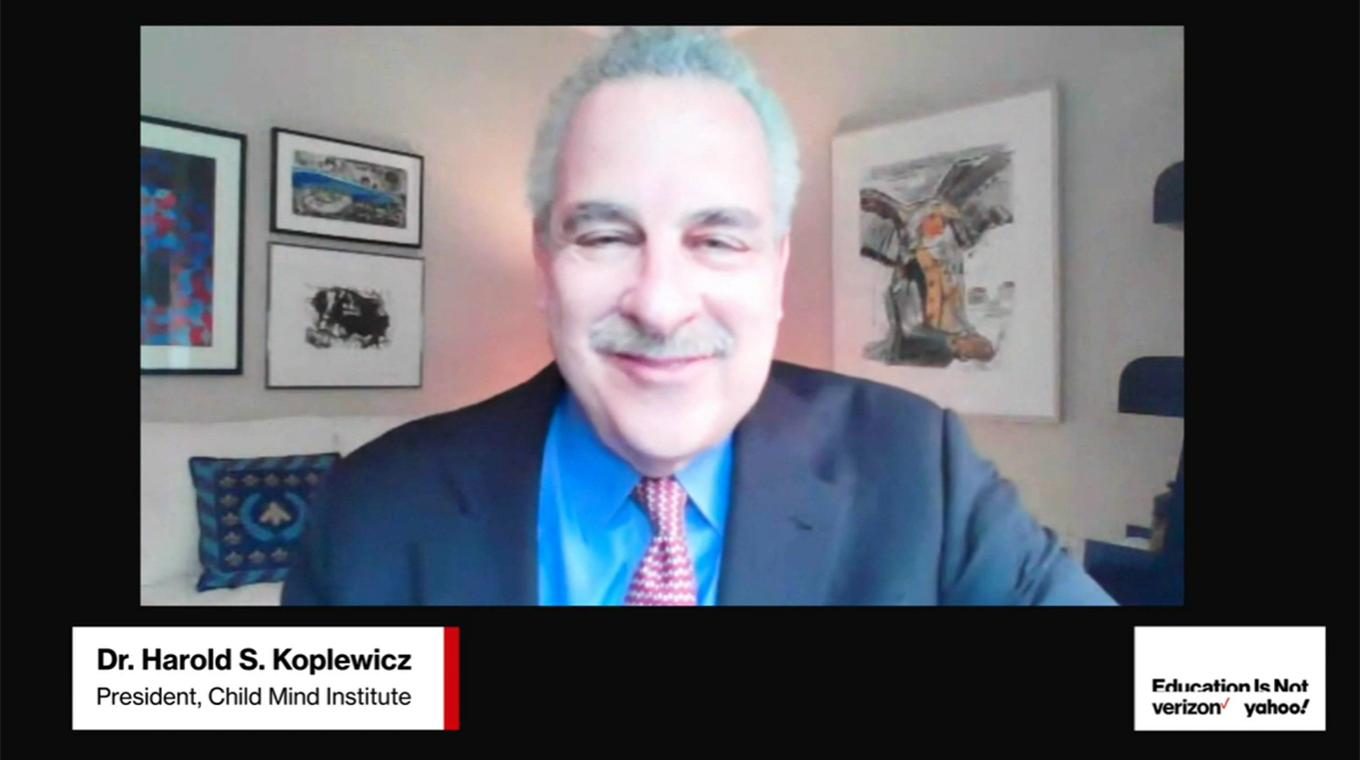
October is Mental Health Awareness month, and more so than any other year, parents are concerned about the emotional state of their children. Even before the onslaught of COVID-19, research revealed that one in five children in the United States shows signs of a mental health disorder. Now the rate of depression and anxiety might be higher. It’s not just the typical grade school and adolescent fears about fitting in, bullying, or even body image that plagues them. In the time of COVID-19, our little ones are mired in very grown-up worries:
Daddy lost his job. Will we lose our home?
What if Nana gets coronavirus and dies?
What if it’s never safe for me to go back to school?
When will I be able to hang with my friends again?
Parents need all the help they can get in navigating this often bleak new normal. I recently sat in on a panel hosted by the Citizen Verizon Assembly, which brings together educators, experts, and celebrities to talk about the issues we face during the pandemic. This particular event, moderated by journalist Soledad O’Brien, featured actress Gabrielle Union; Dr. Harold Koplewicz, president of the Child Mind Institute; and Catie Cole, founder of the How Are You, Really? movement.
The most important thing to know upfront is that no child is immune to the emotional impact of the pandemic
“Even the 60% of kids who are happy-go-lucky and typically developing have more stress,” cautioned Dr. Koplewicz. “Almost every child is dealing with a level of anxiety that they typically didn’t have. And that means it’s going to affect their concentration. It’s going to make learning more difficult. They are feeling more social isolation and, worse, they’re going to feel more helpless and hopeless.” So just how do parents help their children through this turbulent time?
Avoid mixed messages

We also have to be conscious of all the mixed messages our children are receiving. One person says a vaccine is around the corner. Another says, “No, you need to wear a mask.” And yet another insists that you don’t need to wear a mask.
“That kind of uncertainty when terrible things are happening makes kids more anxious,” said Dr. Koplewicz. “And when they are anxious, they don’t necessarily act worried. They can be oppositional. They can be defiant. And when you are a teenager or a young adult, you can actually become enraged.” It’s important to validate their feelings by acknowledging how hard it is for them to miss the baseball season, prom, or living on campus during their first year of college.
Children also need to have someplace to express their feelings. Ideally, that is a parent, but there are other resources that can help. Last spring, Cole launched How Are You Really?, a public service initiative urging young people to open up.
“The idea behind this platform is that these students can speak about their experiences and that they’re having to recognize that it’s OK not to be OK,” Cole said.
Turn off the screens

For many of us, devices are the main connection to the outside world. It’s easy, warned Union, to fall down an information rabbit hole for hours upon hours.
“It was leaving us anxious and feeling less than, feeling forgotten, causing some depressive episodes and numbness,” the mom of one and stepmom of three said. “It can be soul-sucking and exacerbate any kind of mental health challenges that you are having.”
The solution was a tech timeout: Devices must be turned in at 10 p.m. and cannot be accessed until 7 the next morning. “Now we have chunks of time in the day or evening where we actually talk to each other,” Union added. “Novel concept! Be prepared to battle with your kids, but it’s worth it.”
Make it routine
It’s key to make sure everyone is keeping up a routine. If you are working from home and distance learning, it’s easy to stay in your pajamas all day. Bad idea – for both your hygiene and mental health.
“We’re all gonna eat breakfast together,” Union said. “And we all are gonna shower – which sounds crazy, I know, but we weren’t all showering for a couple days.” It’s also important to create moments the entire family can look forward to, like board games, pizza, or movie nights.
Meditate on this
There will be good days, and there will most certainly be tough ones. This is a good time to teach our kids about mindfulness, explained Dr. Koplewicz. Take one minute to just sit with your thoughts. Close your eyes, listen to your heartbeat, and focus on your breathing. Step outside and listen to the birds and the bees and the sound of the leaves.
He advised, “Teach our kids to live in the moment, because as soon as we start thinking about what tomorrow is going to bring – the economy, COVID-19, racial injustice – it becomes overwhelming. And we don’t want to do that to our kids.”







